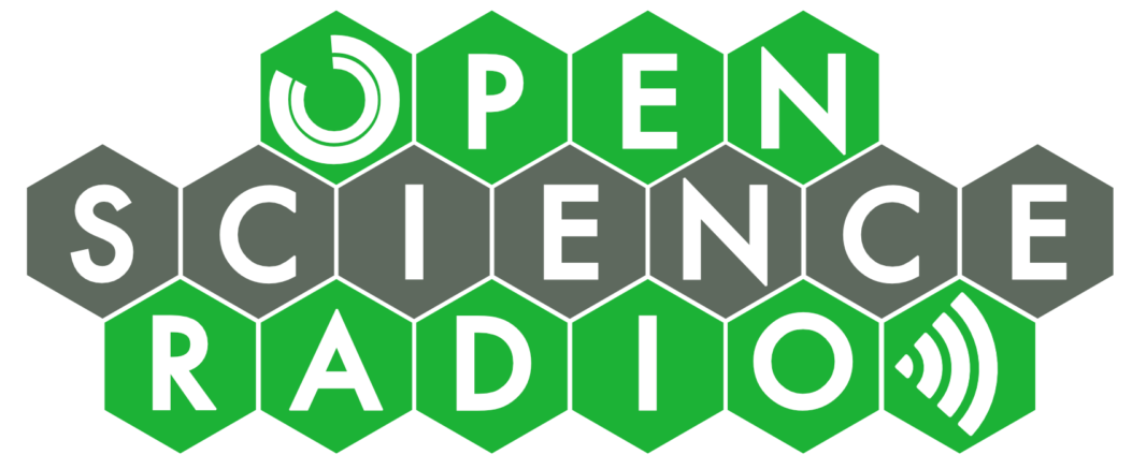Nach seeeeeeehr langer Zeit melden wir uns mal wieder im „alten Format“ mit einer Classic-Episode zurück. Ja, die Situation rund um Corona hat uns einiges abverlangt und einiges an Energie gefressen die normalerweise auch in dieses Projekt geht. Und so geht’s in dieser Episode auch um genau diesen Elefanten im Raum. Wir blicken aber auch auf die News, die … nun ja, so richtig keine mehr sind. Wir stellen uns also auch die Frage wie sich solche Entwicklungen auf unseren Podcast, das Format und die „News“ auswirken. Viel Spaß!
Alle Artikel mit dem Schlagwort: Open Science
OSR186 COVID-19 Biohackathon [EN]
With the current situation around the spread of the COVID-19 pandemic, there are several initiatives pushing forward to help finding solutions to successfully fight the virus. The global bioinformatics community is pushing its own efforts and organized the virtual COVID-19 Biohackathon. Starting today, contributors are invited to virtually work together on multiple topics and share their results openly via Github.
„The goal of COVID-19-BH20 is to create a cohesive effort and work on tooling for COVID-19 analysis. The biohackathon will lead to more readily accessible data, protocols, detection kits, protein predictions etc. We will also push for policy change where it comes to non-public or hard to access data because we are facing such challenges!“
Konrad had the chance to talk to one of the organizers, Leyla Jael Garcia-Castro, about the idea and implementation of this endeavor. Enjoy!
OSR178 WikiCite 2020 – Satellite Cologne Preview [EN]
Following the international WikiCite conferences in 2016, 2017 and 2018 the first WikiCite Satellite conference will take place this year in Cologne, Germany. It is organized by ZB MED – Informationcenter for Life Sciences, GESIS – Leibniz Institute for the Social Sciences and TH Köln – University of Applied Sciences and will take place May 6th – 8th 2020 at GESIS in Cologne.
„The event aims to connect local library institutions and academic researchers with the WikiCite community in their shared interest in an open infrastructure about open citations and linked bibliographic data for research and education. WikiCite is a growing bibliographic knowledge base connected to projects of the Wikimedia Foundation such as Wikipedia and Wikidata.“
Listen in to Konrad and Philipp Schaer sharing some information and their expectations. Enjoy!
OSR177 Community Edition: Perspectives on Citizen Science from Ecuador, Africa and Small Island Developing States [EN]
We have the pleasure to present to you another Community Edition of Open Science Radio, this time kindly provided by Claudia Göbel.
So this episode brings together three experiences of doing research in cooperation between people from inside and outside academic institutions in different settings in the global South:
– How can Citizen Science build on traditions of participatory research in Latin America? Soledad Luna has pushed Citizen Science activities for research and conservation in Ecuador.
– What is Africa OSH and how is it related to Europe? Thomas Mboa works on open and participatory research, DIY biology and cognitive justice with the Association for the Promotion of Open Science in Haiti and Africa (APSOHA) and MboaLab.
– What challenges are involved in getting rare data for monitoring climate change? Khalissa Ikhlef looks after the Sandwatch project for beach monitoring in Small Island Developing States (SIDS) and coastal countries at UNESCO.
This podcast is the edited recording of the “Story Café” workshop that was held as preconference event to the international conference on Citizen Science in June 2018 in Geneva. The workshop was realized by Claudia Göbel as part of her work for the European Citizen Science Association, which organized the conference, in the context of the EU-funded project “Doing-it-Together science” (2016-2019). We hope these stories can be more than just tokens in a structurally unequal conversation and inspire others to share their experiences, listen closer and critically interrogate the global nature of knowledge production, research policy as well as our very personal role within them.
OSR176 Podiumsdiskussion „Wie wird das wissenschaftliche Publizieren der Zukunft aussehen?“ [DE]
Der Universitätsverlag der TU Berlin hat in diesem Jahr sein 50-jähriges Jubiläum gefeiert. Zu diesem Anlass gab es am 22. Oktober eine Podiumsdiskussion in der Universitätsbibliothek der TU. Unter dem Motto „Ein Blick zurück und zwei nach vorn“ diskutierten die TeilnehmerInnen Prof. Dr. Sabine Hark (TU Berlin, Gender Open, Zentrum für interdisziplinäre Frauen- und Geschlechterforschung), Dr. Ulrich Herb (SULB Saarbrücken), Prof. Dr. Johanna Hoerning (TU Berlin, Institut für Soziologie), Dr. Cori Mackrodt (Springer-Verlag) und Prof. Dr. Konrad Förstner (ZB MED Köln, Open Science Radio). Im Mittelpunkt der von Dr. Christina Riesenweber (FU Berlin) moderierten Diskussion stand die Frage wie das wissenschaftliche Publizieren der Zukunft aussehen wird.
OSR175 BibCamp 2019 [DE]
Am 15. und 16. November 2019 findet in Köln das diesjährige BibCamp statt. Das BarCamp für Diskussionen über aktuelle Entwicklungen rund um das Bibliothekswesen und Informationsmanagement wird in diesem Jahr von Studierenden des Studiengangs Bibliothekswissenschaften an der TH Köln und dem Berufsverband Information Bibliothek e.V. organisiert und findet im Geisteswissenschaftlichen Zentrum der TH Köln statt. Konrad hatte die Gelegenheit mit zwei der OrganisatorInnen, Marion und Judith, zu sprechen.
Die Anmeldung für das BibCamp ist noch bis zum 31. Oktober möglich.






